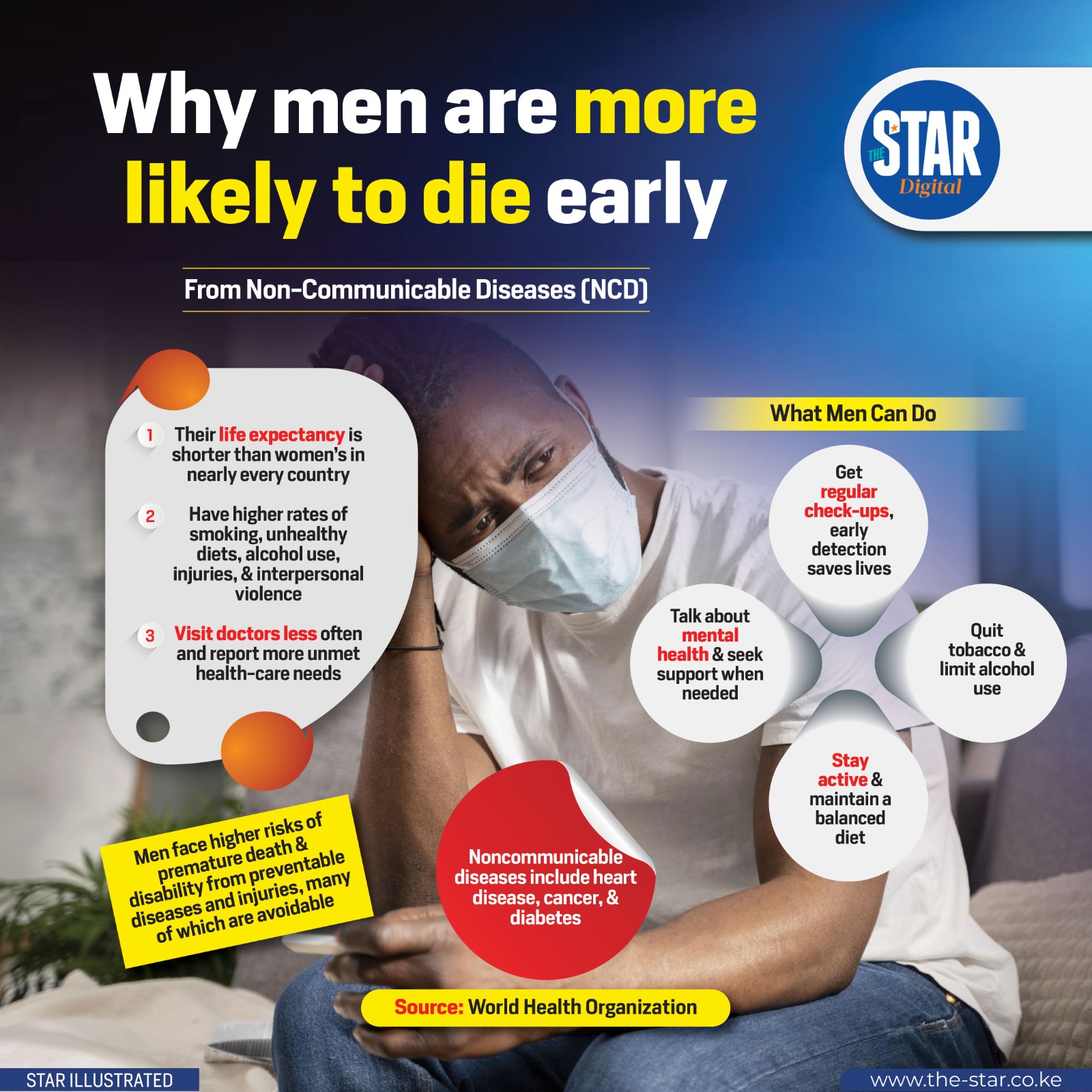

Men worldwide face a higher risk of premature death and disability from Non-Communicable Diseases (NCDs), contributing to a lower life expectancy than women in nearly every country.
This disparity is often attributed to several key behavioural and social factors.
Men typically exhibit higher rates of unhealthy lifestyle choices, including smoking, poor diet, and alcohol misuse, alongside an increased risk of injuries and interpersonal violence.
Crucially, they also tend to visit doctors less often, resulting in unmet health-care needs and delayed detection of serious conditions.
NCDs, which include major killers like heart disease, cancer, and diabetes, are largely preventable. To address this, men are encouraged to take proactive steps: prioritise regular check-ups and early detection, quit tobacco and limit alcohol use, stay active and maintain a balanced diet, and seek support for mental health needs.
By modifying these behaviours and engaging with the healthcare system more readily, men can significantly reduce their risk and improve their long-term health and survival.














